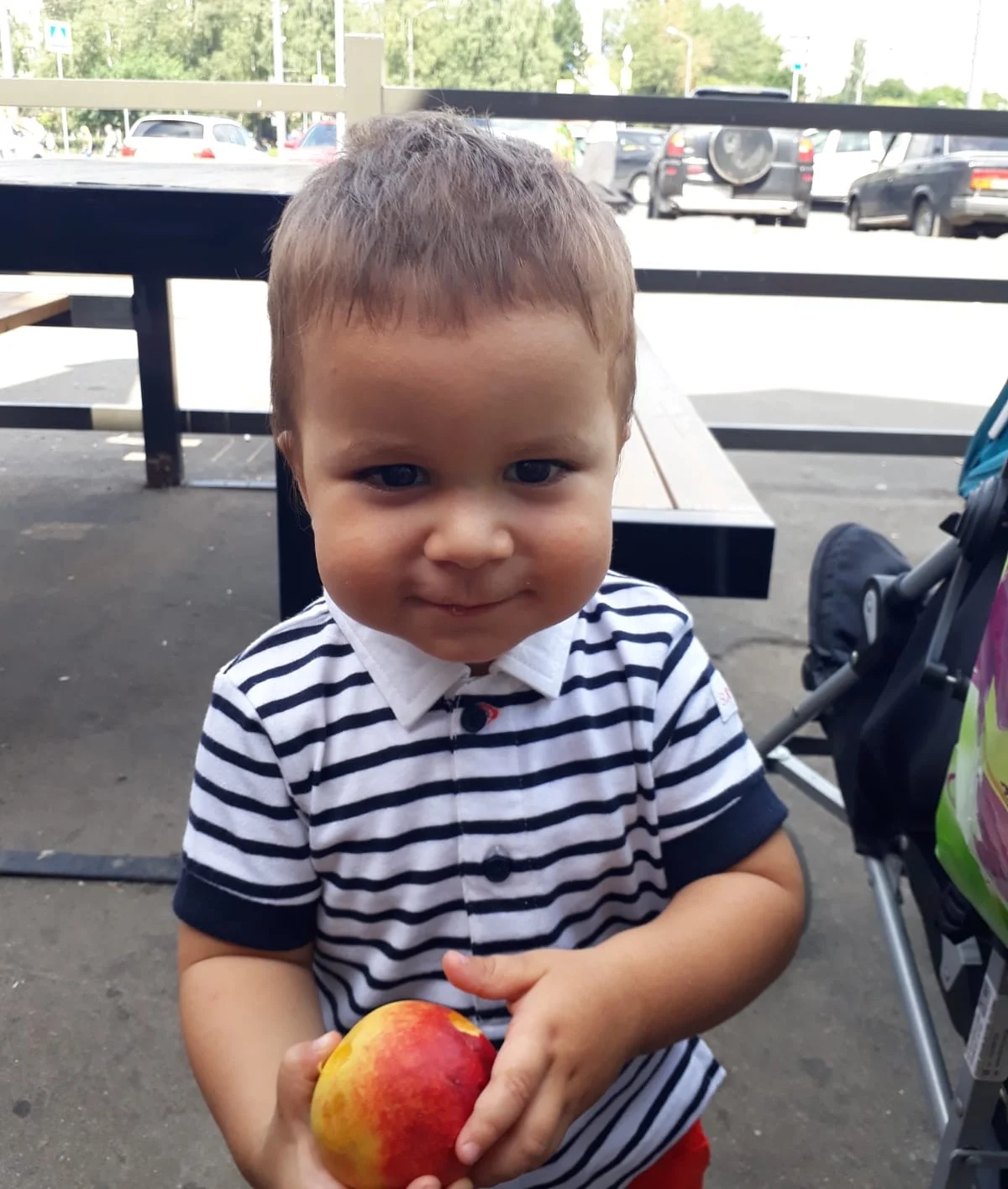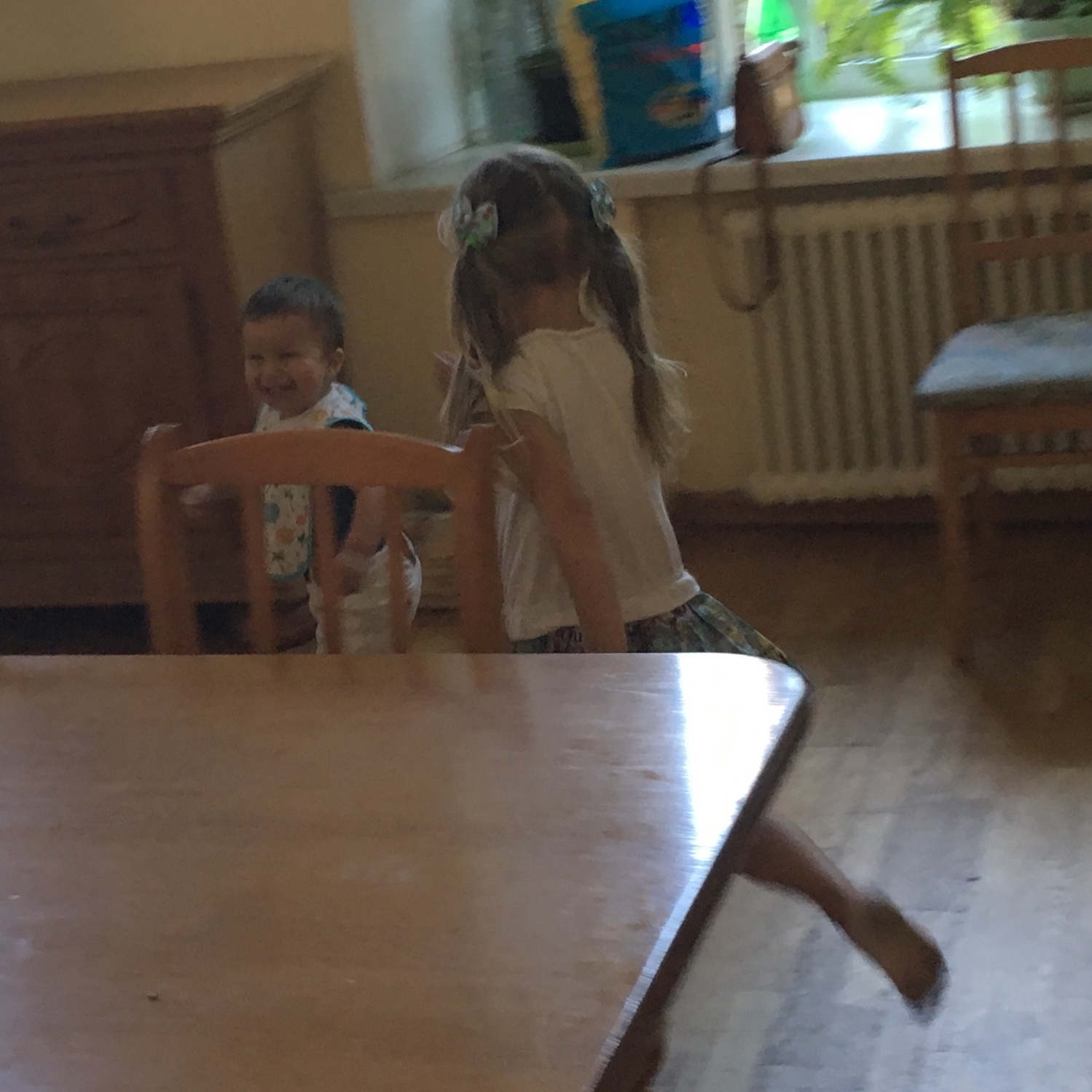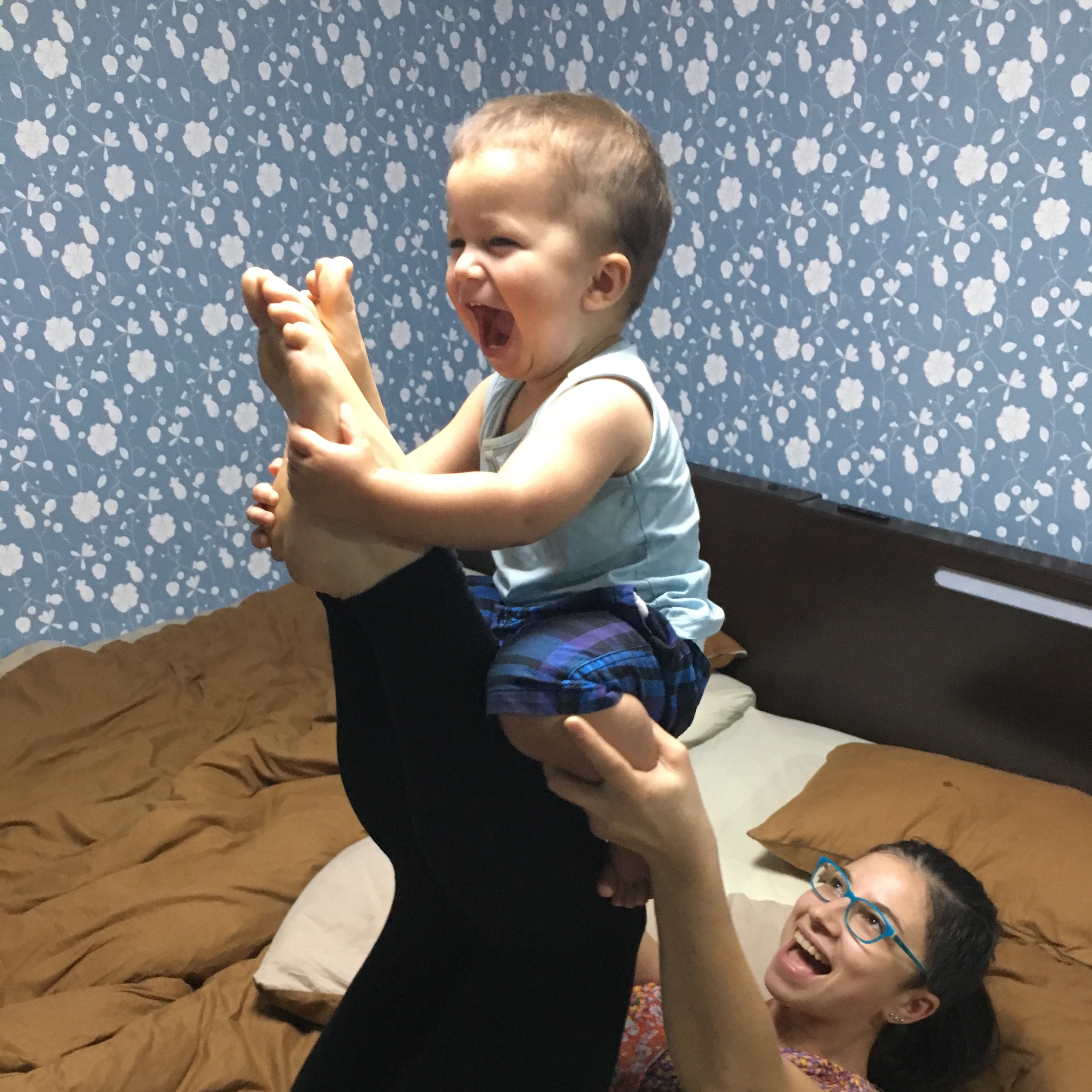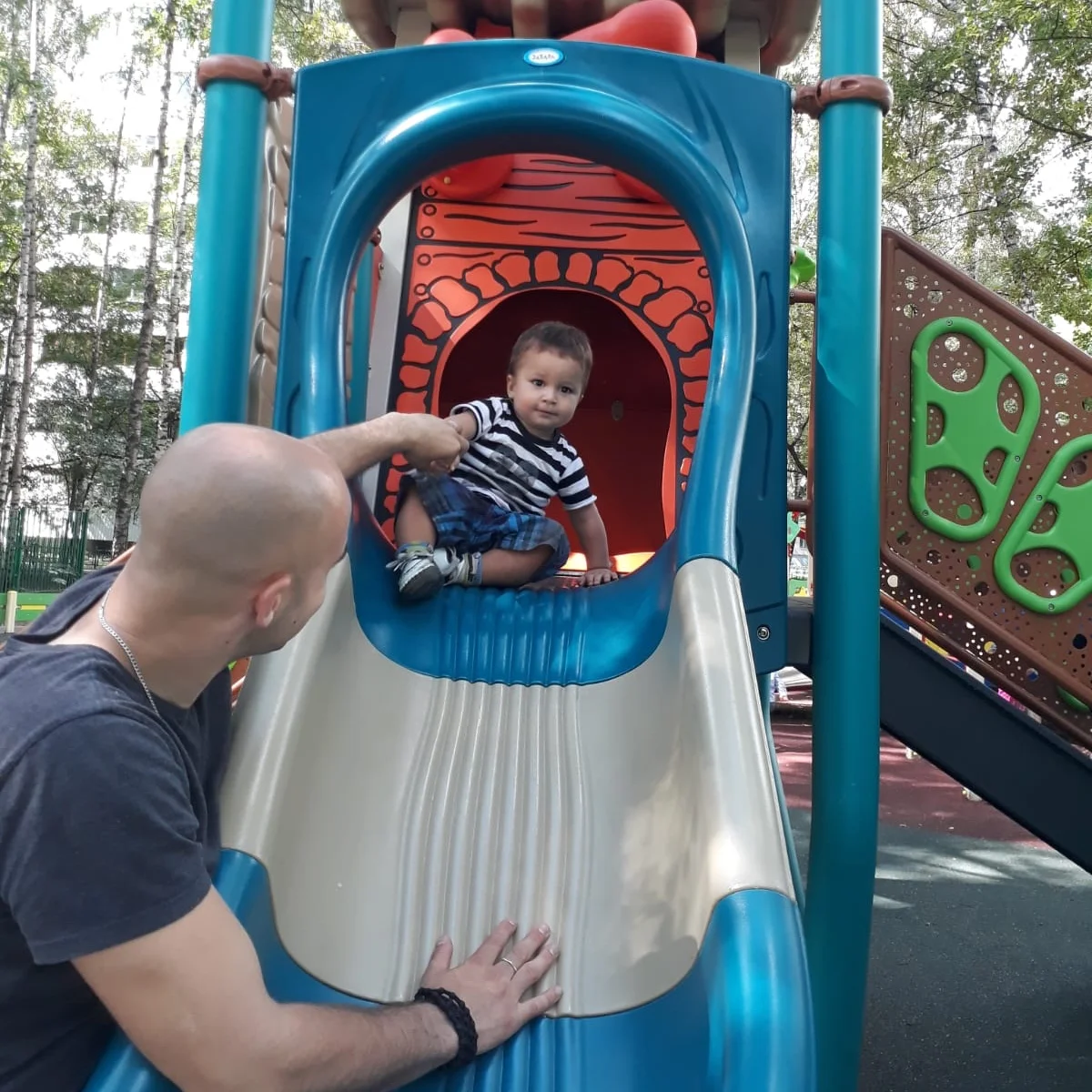What My One Year Old Son Taught Me About Making Friends
It’s 5:30pm and all of the local children have come outside to play in one of the hundreds of local parks scattered in-between the ‘Corpus’, the large multistorey apartment buildings made during the Soviet era.
I am here in Russia on vacation with my wife and son, Archer.
We are showing him off to his grandparents for the first time. Thankfully Babuska and Dedukuska can speak fluent English, because my Russian only consists of the ability to tell people that I only speak a little bit of Russian 'ya nemnogo govoryu po-russki', and how to order my wife a coffee 'mozhno mne kofe, pozhaluysta'. She made sure I knew that before we arrived!
At the park Archer is playing gleefully. I am amazed to see him learning how to use a slide right before my eyes. In the last week he has worked out how to climb the stairs, sit down at the top of the slide, and then do a little butt-scoot to start his descent. He can easily repeat this process 10 or more times without interruption.
But today, Archer is interrupted. At the base of the slide, I notice Archer noticing a young Russian boy of about his age.
Kids recognise kids, and instantly make a connection.
Massive smiles, preverbal voices and imitation of interesting and new gesticulations. This boy teaches my son how to make pointy fingers and a “Ch ch ch” sound, and my son teaches him to put his finger on his mouth and make a “Sh sh sh” sound.
They then proceed up the stairs and onto the slide. It quickly becomes apparent that this boy has never used the slide before, but upon seeing Archer use it, he is quick to follow. Now they are both laughing hysterically, triggering each other when the other begins to calm down.
I smile up at the boy’s mother who is playing shepherd just as I am. Being somewhat of a shy person, and having no ability to really communicate with the locals, I tended to avoid these peak times as I didn’t want the stress of both looking after Archer, and attempting to communicate to people in broken Russian/English.
Today however, seeing that my son has made a friend, I decide to try and follow his example.
After some false starts, we are able to exchange the ages of our respective children, and where I am from and why I am in Russia. She says he is beautiful 'krasivaya', and I agree. Our communication is clunky, a touch awkward, but we are making progress. This ends rather quickly when her child starts to wane and begins asking for food.
Play time is over.
I wanted to share that story with you, to give you a taste of what every day is like with my son.
He makes friends instantly, and not just with toddlers mind you.
On the train he is talking to and engaging with everyone. He doesn’t discriminate either, he will happily start chatting to the roided up Russian bear of a man as he will the teenage girl or her Grandma. More than once, he has charmed a business man into spontaneously giving him a gift.
His unabashed confidence and ability to just make friends has blown me away. I am happy to say that I am learning social skills from my 1.5 year old. True, I don’t approach strangers and show them my toy train collection, or teach them how to go “Sh sh sh”, but I am starting to use some of the methods of connection that my son is naturally demonstrating.
1: Smile Widely
Archer has a massive, intoxicating and completely genuine smile (I guess most babies do). When you see him smile at you, you can’t help but feel good.
So I tried walking around with a smile on my face for a while, and what do you know it started working. People started smiling back, women started giving me looks and some even began approaching to talk (once again my Russian is terrible, so all I could really talk to them about was coffee!).
2: Initiate the Action
Archer will routinely initiate the action and simply start playing with people. It is not a rare occurrence to all of a sudden find yourself in the middle of a game with him. Nor is it rare to see him pulling strangers into his play. He just starts and people follow – ‘peek-a-boo’, ‘call and response’, ‘chasey’, ‘rolling his trains’ or simply just laughing together.
This is something that I was already doing socially, but it was great to see the lesson reaffirmed in a different context. People like to follow, it is easier to say yes to someone else’s proposition than it is to come up with your own and risk people rejecting it.
I have found that when I make a suggestion and project it confidently, people tend to follow along.
This is great for getting things done and for decision making within groups that are so kind as to create stagnation over decisions due to the desire to appease all the parties involved.
3: Be Confident
Archer doesn’t seem to doubt himself socially.
This confidence shows itself whenever he is out and about and begins interacting with people, he shows no fear (or has none) and simply takes action and makes friends. I wish I had such confidence socially. I am full of those all too adult fears of looking the fool and of being rejected.
Life is too short to live in this kind of fear, so I think I will take a leaf out of Archer’s book. Russia is a highly communal country, with many groups of people gathering after work to play sport in the local parks. Perhaps I will work out how to ask to join in and play with them.
Then I just need to approach them and simply do it.
Wish me luck!
Zachary Phillips
If this post has resonated with you, I would love your support.
Read next:
Everything You Need To Know Prior Having A Baby
Fuelling Positivity
This blog post was inspired by the book, No Bad Kids: Toddler Discipline Without Shame, If I could only recommend one book for all parents to read, this would be it. No Bad Kids will teach you how to raise a happy, healthy and respectful child with out shame. It's simple advice and easily applied, but necessary for all parents.
Your shadow is the gateway to a more authentic you.
This course is your guide to profound inner work. Through powerful insights, guided prompts, and proven techniques, you'll navigate your shadow, heal unresolved wounds, and reintegrate the parts of yourself you’ve long ignored.
What’s Inside:
12 x Guided Meditation & Contemplations
12 x Introspective Prompts
12 x Expansion Challenges
A comprehensive instructional PDF guidebook
Unlimited email coaching for ongoing support and personalized guidance
Explore full course details and watch intro video here!
This isn’t just about healing, it’s about meeting your shadow head-on, embracing every part of yourself, and reclaiming your full power.
Are you ready to face what’s been hidden and step into your truth?




